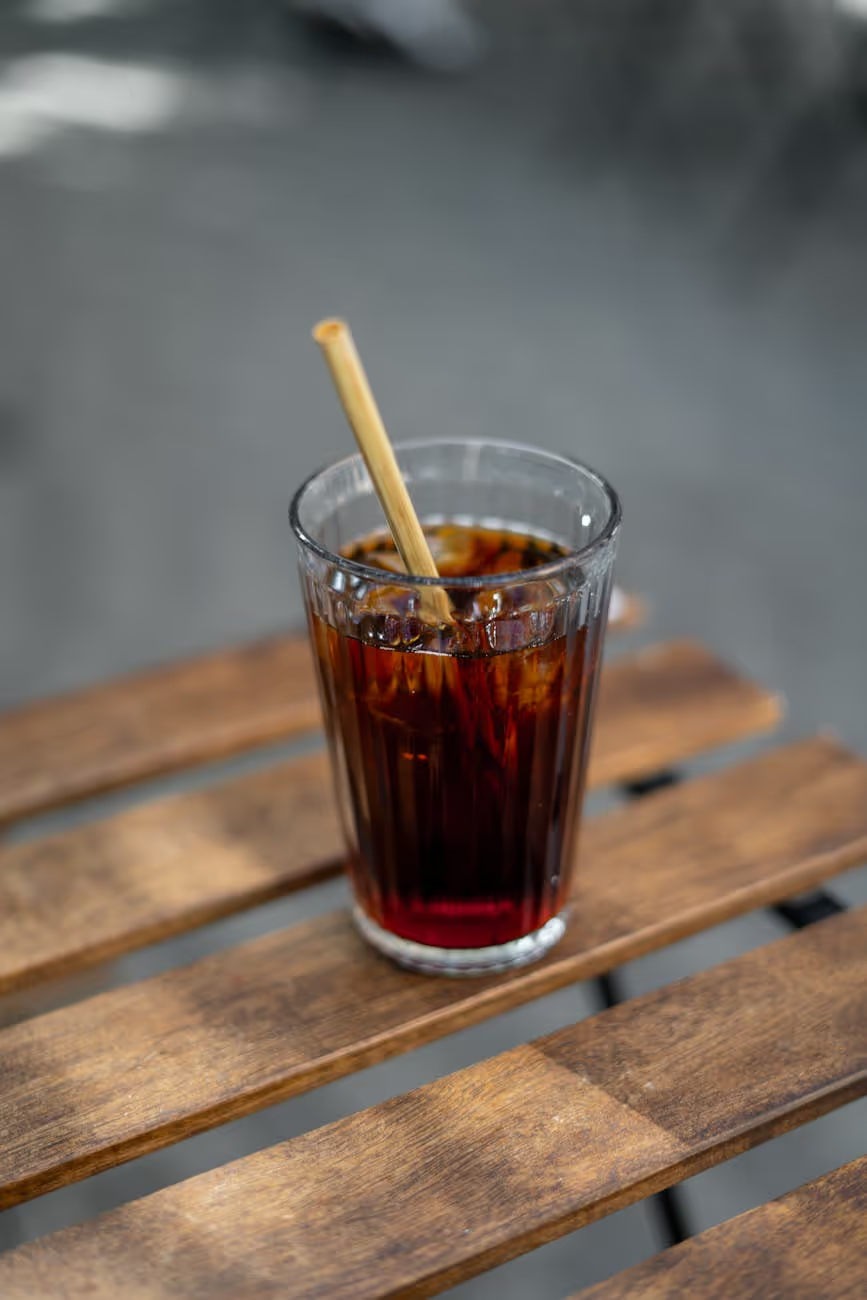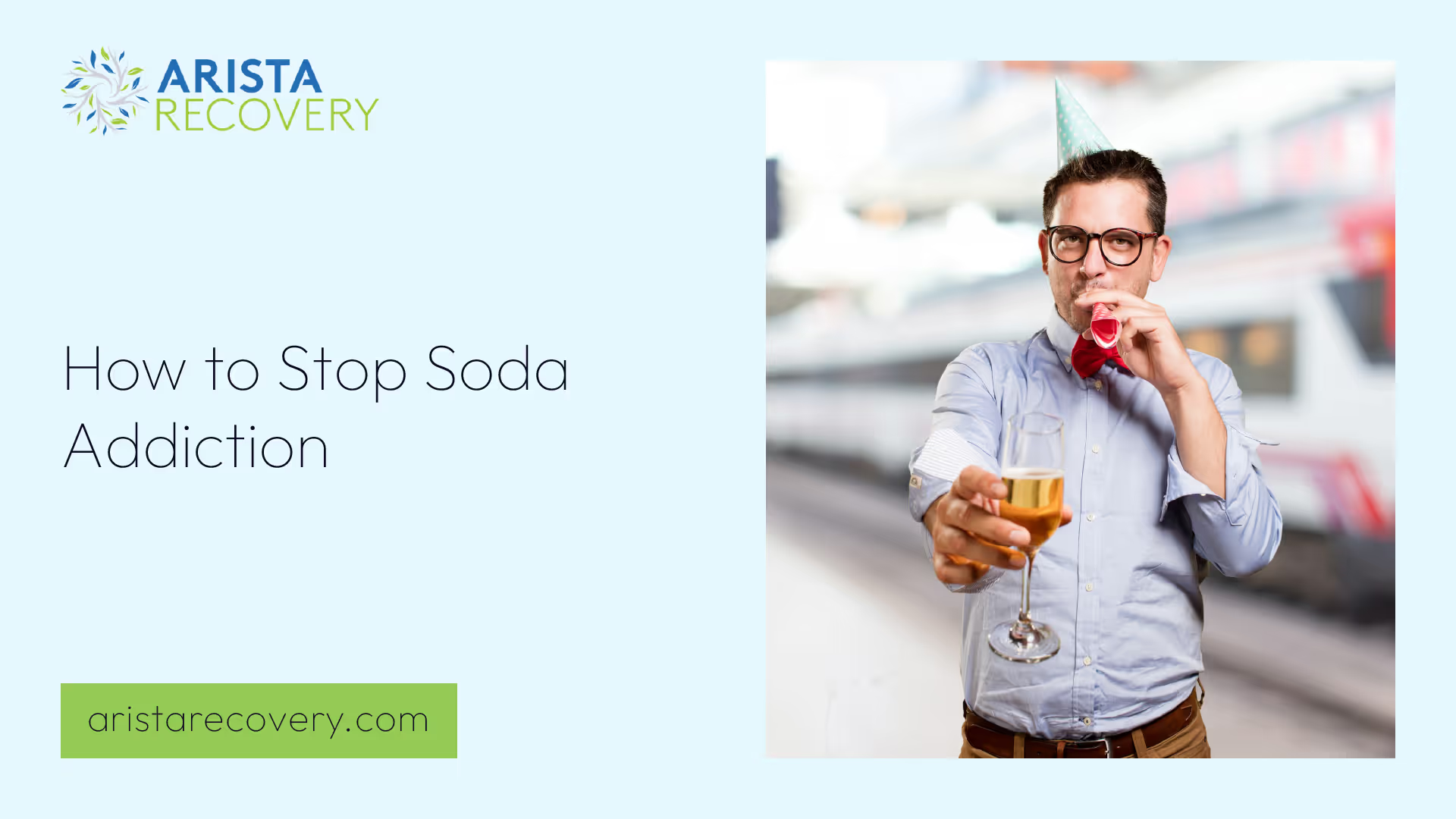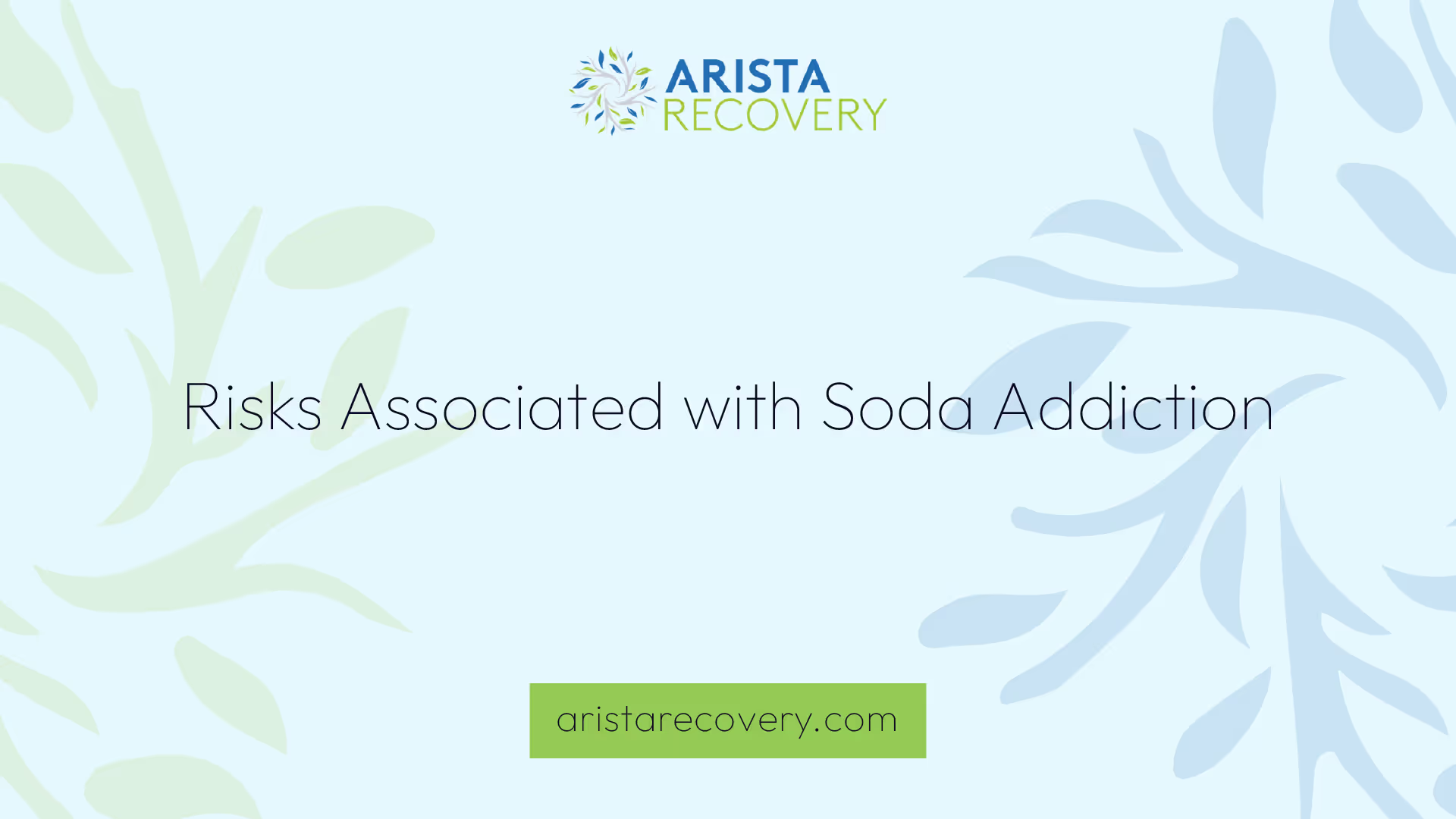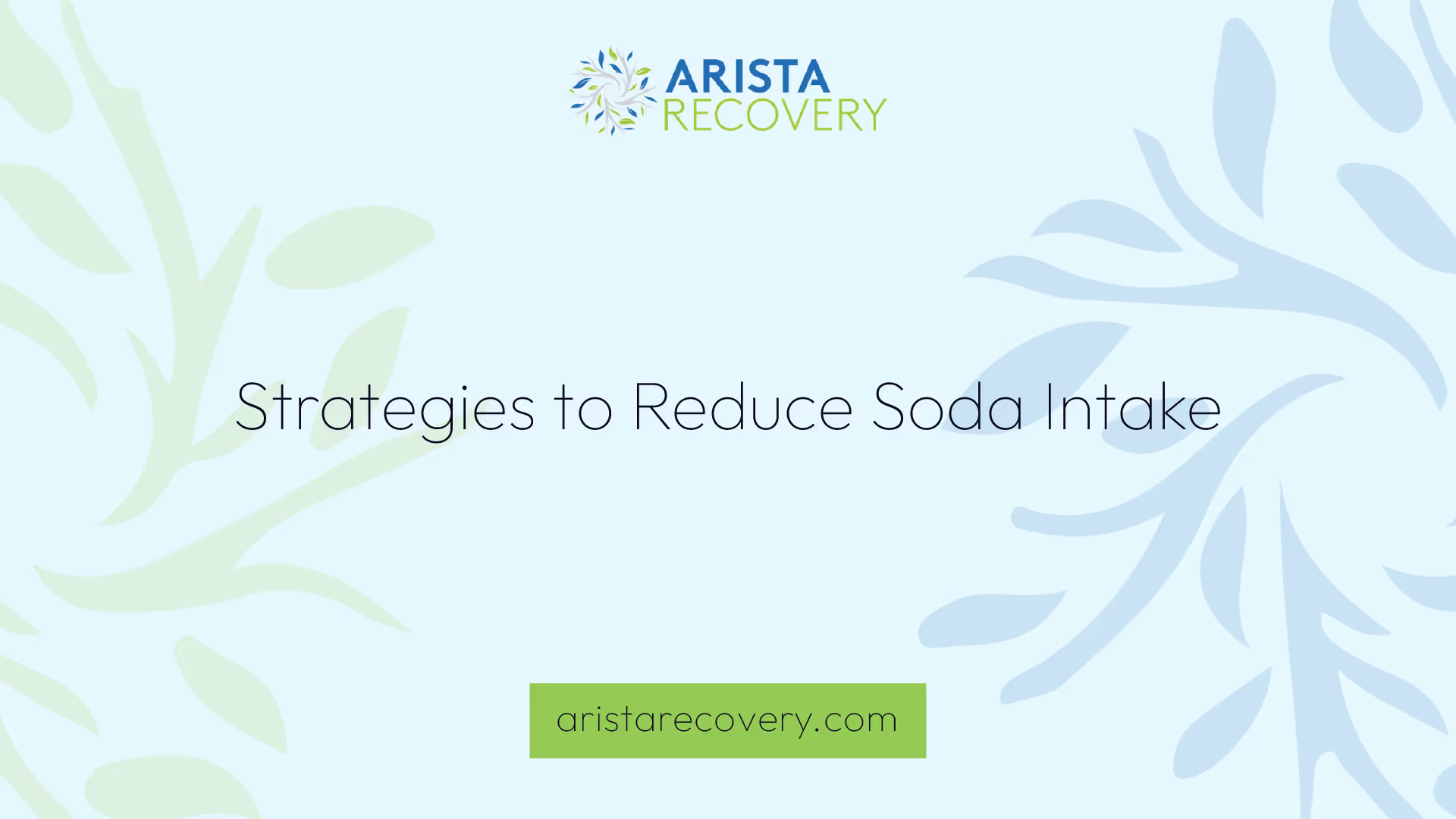How to Stop Soda Addiction


Understanding Soda Addiction
Soda addiction is a growing concern as many individuals consume excessive amounts of sugary or diet sodas, leading to various health issues. Understanding the impact of soda consumption and recognizing the symptoms of dependency are crucial steps in addressing this addiction.
Impact of Excessive Soda Consumption
Excessive soda consumption can have numerous negative effects on health. Consuming too much soda may lead to weight gain, diabetes, and cardiovascular conditions. It may be best to choose healthier alternatives to soda [1]. Here are some key impacts:
- Weight Gain: Heavy intake of both regular and diet soda can cause unwanted weight gain. Full-sugar soda contains about 100 calories per 8-ounce serving, leading to potential extra calorie intake if consumed in large amounts [2].
- Type 2 Diabetes: Regular consumption of sugary sodas can increase the risk of developing type 2 diabetes due to high sugar content and subsequent insulin resistance.
- Tooth Decay: Dependence on soda can lead to tooth decay and weaken teeth due to the acidic nature of soda, especially full-sugar soda which feeds bacteria that form plaque, speeding up tooth decay [2].
- Heart Disease: Consuming sugary beverages regularly can contribute to heart disease by increasing blood sugar levels, leading to inflammation and other cardiovascular issues.
Symptoms of Soda Dependency
Recognizing the symptoms of soda dependency is essential for tackling the addiction. Individuals addicted to soda may experience withdrawal symptoms when they are unable to have their usual intake. Symptoms include:
- Headaches: A common withdrawal symptom due to the sudden lack of caffeine and sugar.
- Irritability: Mood swings and irritability resulting from the body's craving for sugar and caffeine.
- Depressed Mood: Feeling down or experiencing a low mood due to the absence of the stimulants found in soda.
- Grogginess: A sense of fatigue or sluggishness when soda is not consumed.
It's important to address these symptoms and seek appropriate strategies for reducing soda intake. For more information on combating different types of addiction, visit our articles on how to stop my sugar addiction, how to stop food addiction, and how to stop spending addiction.

Risks Associated with Soda Addiction
Understanding the risks associated with soda addiction is crucial for those looking to kick the habit for good. The excessive consumption of soda can have several adverse effects on health.
Health Consequences of Soda Dependency
Consuming too much soda can lead to significant health consequences, some of which are listed below:
- Weight Gain and Obesity: Regular soda consumption is closely linked to obesity due to its high sugar content, which contributes to weight gain. This is particularly concerning as obesity increases the risk of various health conditions [3].
- Type 2 Diabetes: The excessive sugar in soda can lead to insulin resistance, increasing the risk of developing type 2 diabetes [1].
- Cardiovascular Conditions: High sugar intake from soda can elevate blood pressure and contribute to heart diseases, including heart attacks and strokes.
- Dental Health Issues: Soda can cause tooth decay, as sugary drinks are a leading cause of this dental problem [1].
Link Between Soda and Health Conditions
Soda has been linked to various health conditions beyond those directly associated with its sugar content. Here are some notable examples:
- Liver Disease: Excessive soda consumption can lead to non-alcoholic fatty liver disease due to the high fructose content, which burdens the liver [4].
- Cancer: Drinking soda is associated with a higher risk of developing certain cancers, including colorectal cancer.
- Stroke and Heart Disease: A study published in JAMA Internal Medicine found that soda consumption is linked to a higher risk of heart disease and stroke.
- Poor Skin Health: High sugar intake from soda can contribute to poor skin health, including conditions like acne.
Understanding these risks emphasizes the importance of reducing soda intake. For practical strategies on how to stop soda addiction, explore our article on how to stop my sugar addiction. Additionally, for those seeking professional assistance, consider exploring cognitive behavioral therapy and other treatment options.

Strategies to Reduce Soda Intake
Successfully reducing soda intake involves a combination of gradual reduction methods and discovering healthy alternatives. These strategies can help individuals break the cycle of soda dependency and improve their overall well-being.
Gradual Reduction Methods
Gradual reduction is an effective approach to decrease soda consumption, making the transition smoother and more sustainable.
- Track Your Intake: Start by noting how much soda you consume daily. This awareness can help you set realistic goals for reduction.
- Reduce Portion Sizes: Begin by reducing the size of your soda servings. Opt for smaller cans or pour less soda into your glass.
- Increase Water Intake: Drinking more water can help curb soda cravings. Sometimes, the desire for soda is actually a sign of thirst.
- Set Incremental Goals: Gradually decrease the number of sodas you drink each week. For example, if you drink three sodas a day, reduce it to two, then one, and eventually, zero.
- Replace One Soda at a Time: Swap one soda a day with a healthier beverage, such as sparkling water or herbal tea. This method can ease the transition without making it feel overwhelming.
Healthy Alternatives to Soda
Finding satisfying alternatives to soda can make it easier to cut down on consumption. The CDC recommends sparkling water as a healthier choice [1].
- Sparkling Water: Carbonated water can mimic the fizzy sensation of soda without the added sugars or calories.
- Infused Water: Add slices of fruits like lemon, lime, or berries to your water for a burst of flavor.
- Herbal Teas: These can be served hot or iced and come in a variety of flavors, providing a tasty and healthy alternative.
- Diluted Juice: Mix fruit juice with water to reduce sugar content while still enjoying a sweet beverage.
- Coconut Water: A natural, hydrating drink that offers a subtle sweetness and is rich in electrolytes.
By implementing gradual reduction methods and exploring healthy alternatives, individuals can effectively reduce their soda intake. This journey can lead to improved health outcomes and a reduced risk of conditions such as weight gain, diabetes, and cardiovascular issues [1]. For more tips on breaking various types of addictions, visit our articles on how to stop food addiction and how to stop spending addiction.
Coping with Soda Cravings
Effectively managing cravings is a critical step in learning how to stop soda addiction. Here are strategies to address triggers for soda consumption and develop healthy habits to combat cravings.
Addressing Triggers for Soda Consumption
Understanding the triggers that lead to soda consumption can be instrumental in overcoming soda addiction. Common triggers include habits, stress, boredom, and social settings [6]. By identifying these triggers, individuals can take proactive steps to avoid or manage them.
- Habits: Replace the habit of reaching for a soda with a healthier alternative. For example, if you usually grab a soda during your afternoon break, try opting for a cup of herbal tea or a piece of fruit instead.
- Stress: Stress can induce cravings for soda. Incorporating stress-relieving techniques such as regular exercise, meditation, yoga, deep breathing, and mindfulness can help manage stress levels and reduce soda cravings.
- Boredom: Find engaging activities to occupy your time. This could include reading, engaging in a hobby, or spending time with friends and family.
- Social Settings: In social settings, you can switch to flavored water or seltzer to meet the need for a beverage without the added sugar and calories of soda.
Healthy Habits to Combat Cravings
Building healthy habits alongside reducing soda consumption can aid in resisting cravings and feeling better overall.
- Hydration: Drinking more water can help curb soda cravings, as sometimes soda cravings can be confused with thirst. Water not only quenches thirst but also helps with hydration.
- Regular Meals and Snacks: Hunger is a key driver of cravings, including those for soda. Ensuring you don't get hungry by eating regularly throughout the day and having healthy snacks nearby can help combat soda cravings.
- Healthy Alternatives: Incorporate healthy alternatives to soda in your diet. Options such as herbal teas, flavored water, and natural fruit juices can provide the satisfaction of a flavored beverage without the negative health impacts of soda.
By addressing the triggers for soda consumption and adopting healthy habits, individuals can effectively manage their soda cravings. For more strategies on combating addiction, consider exploring our articles on how to stop food addiction and how to stop spending addiction.
Seeking Support for Soda Addiction
For individuals struggling with how to stop soda addiction, seeking professional support can be a crucial step. Cognitive Behavioral Therapy (CBT) and professional guidance offer effective strategies to combat this dependency.
Cognitive Behavioral Therapy (CBT)
Cognitive Behavioral Therapy (CBT) is a well-established method for addressing various forms of addiction, including soda addiction. CBT focuses on modifying problematic thought patterns that lead to unhealthy behaviors such as excessive soda consumption. According to Verywell Mind, CBT can help individuals identify and challenge the cognitive distortions that contribute to their soda dependency.
Key aspects of CBT for soda addiction include:
- Identifying Triggers: Understanding what prompts soda cravings.
- Developing Coping Mechanisms: Learning healthier ways to deal with these triggers.
- Behavior Modification: Gradually replacing soda consumption with healthier habits.
Professional Guidance and Treatment Options
Since soda addiction is not formally recognized as a disorder, there is no standardized treatment protocol. However, individuals struggling with excessive soda consumption can benefit from professional guidance. Mental health professionals can assess soda consumption habits, lifestyle, symptoms, and family history to provide tailored advice [7].
Professional treatment options may include:
- Therapy Sessions: Regular meetings with a therapist to discuss progress and challenges.
- Support Groups: Participating in groups with others facing similar struggles.
- Nutritional Counseling: Working with a nutritionist to develop a balanced diet that reduces soda cravings.
- Behavioral Interventions: Techniques to gradually reduce soda intake and replace it with healthier alternatives.
For more information on managing addictions, you can explore our articles on how to stop food addiction, how to stop spending addiction, and how to stop my sugar addiction.
Lifestyle Changes to Break the Soda Habit
Overcoming soda addiction requires making lifestyle adjustments that promote better hydration and introduce enjoyable, healthy alternatives. By adopting these changes, individuals can effectively curb their cravings for sugary beverages and improve their overall well-being.
Hydration and Thirst Management
Staying well hydrated is key to reducing soda intake because it’s easy to mistake feelings of thirst for cravings, leading you back to sugary drinks. Drinking more water can help curb soda cravings, as sometimes soda cravings can be confused with thirst. Water not only quenches thirst but also helps with hydration.
Fun and Healthy Soda Alternatives
Switching to healthier beverage options can make the transition away from soda more enjoyable. There are numerous creative and tasty alternatives to choose from.
- Flavored Water: Try making flavored ice cubes using fruit juice, herbs, or small pieces of fruit. When added to plain water or sparkling water, they unleash a burst of flavor without the guilt of calories or sugar content.
- Herbal Teas: Herbal teas can be enjoyed hot or cold and come in a variety of flavors. They are caffeine-free and offer numerous health benefits.
- Infused Water: Infuse water with slices of your favorite fruits, such as strawberries, oranges, or mint leaves. This not only adds a refreshing taste but also encourages you to drink more water.
- Unsweetened Coffee or Tea: Swapping out just one sugary drink a day for unsweetened coffee, tea, or water may reduce the risk of type 2 diabetes by as much as 25 percent [5].
By implementing these lifestyle changes, individuals can effectively manage their soda cravings and take significant steps towards breaking their soda addiction. For more strategies on managing various forms of addiction, explore our articles on how to stop food addiction, how to stop spending addiction, and how to stop my sugar addiction.
References
[1]: https://www.medicalnewstoday.com/articles/is-soda-bad-for-you
[2]: https://www.healthline.com/nutrition/soda-addiction
[3]: https://ucfhealth.com/our-services/lifestyle-medicine/healthy-alternatives-to-soda/
[4]: https://www.healthline.com/nutrition/how-to-stop-drinking-soda
[5]: https://www.everydayhealth.com/photogallery/soda-alternatives.aspx
[6]: https://www.bannerhealth.com/healthcareblog/better-me/5-ways-to-kick-your-soda-habit-for-good
[7]: https://www.verywellmind.com/soda-addiction-definition-symptoms-causes-and-treatment-5214740
You’re not alone in this.
When mental health challenges and addiction intersect, it can feel isolating. At Arista, we offer compassionate, evidence-based, and trauma-informed care to help you heal, grow, and move forward.
You’re not alone in this.
When mental health challenges and addiction intersect, it can feel isolating. At Arista, we offer compassionate, evidence-based, and trauma-informed care to help you heal, grow, and move forward.
Support that moves with you.
You’ve taken a brave first step. At Arista Recovery, we’re here to help you continue with best-in-class care designed for long-term healing and support.
.webp)






